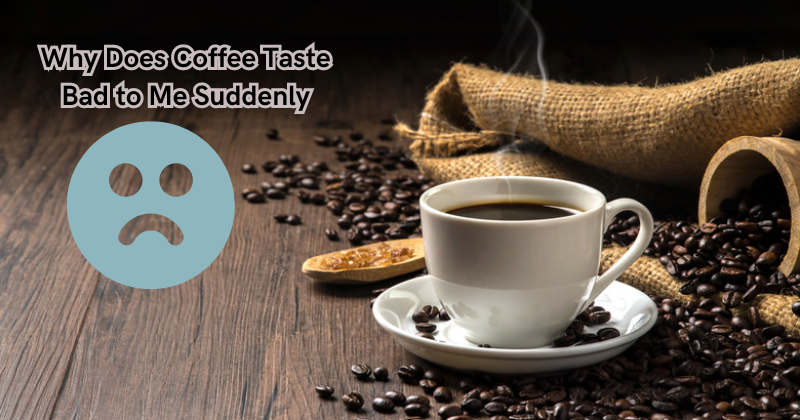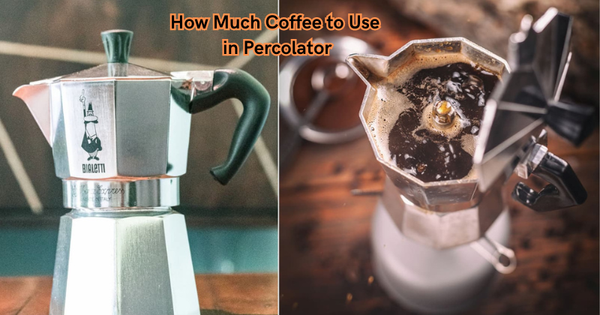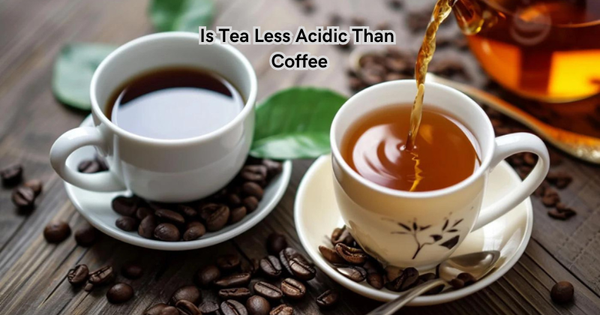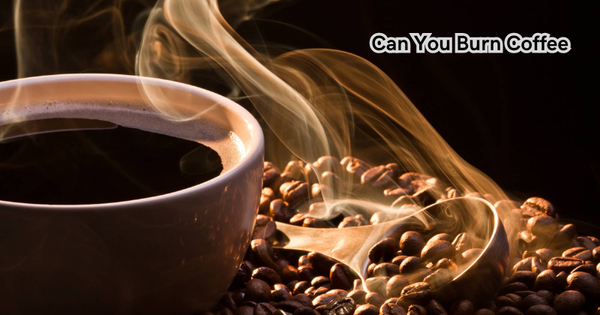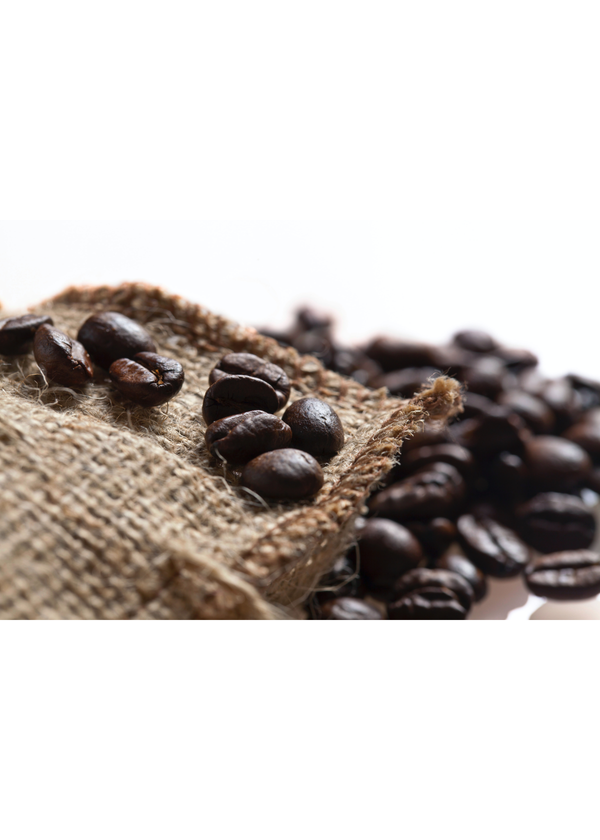If you've found yourself asking, "Why does coffee suddenly taste bad to me?" you're not alone.
Sudden changes in the flavor of coffee can be perplexing, especially for devoted coffee enthusiasts. Several factors could contribute to this shift, including changes in your taste buds due to illness or medication, variations in the quality or freshness of the coffee beans, or even psychological changes such as stress or anxiety.
Understanding the potential reasons behind this sudden aversion to coffee can help you navigate this issue and rediscover the enjoyment of your favorite caffeinated beverage. Let's explore some possible explanations and strategies for addressing this unexpected change.
The Importance of Coffee Taste
For many, coffee is not just a beverage but a ritual. The smell of freshly brewed coffee in the morning can be refreshing and comforting, providing a sense of routine and familiarity to start the day. Additionally, the unique taste of coffee is part of what makes it so appealing. If coffee tastes bad in the morning, it can throw off the entire day.
From bold and bitter espresso machine shots to creamy and sweet latte creations, coffee offers various flavors and aromas to satisfy different palates. But when that taste suddenly changes, it can be frustrating and disappointing. Bitter coffee can become unpalatable, and sweet coffee taste cloying and unpleasant. Coffee compounds, including caffeine and acids, impact the flavor profile of coffee significantly. So, what could be causing your taste buds to perceive these compounds differently?
Why Does Coffee Taste Bad to Me Suddenly?
There are several reasons why your coffee may suddenly taste bad, some of which are temporary and easily addressed, while others may require more investigation. These reasons include:
Changes in Taste Buds:
One of the most common reasons coffee tastes bad suddenly is changes in your taste buds. Various factors, such as illness or medication can influence these tiny sensory organs on your tongue. For example, certain medications, such as antibiotics or antidepressants, can interfere with your sense of taste and make coffee (and other foods) taste different or even unpalatable.
Similarly, viral infections like the common cold can temporarily alter your taste buds and make coffee taste off or unpleasant. If you suspect this may be the case, try to identify any recent changes in medication or illness and consult with a doctor if necessary.
Quality of Coffee Beans:
Another potential culprit for the sudden distaste towards coffee could be the quality or freshness of the coffee beans. If you typically purchase pre-ground coffee, it's possible that the beans have gone stale and lost their flavor. Coffee is best enjoyed when brewed with freshly ground beans, so consider investing in a grinder or purchasing whole beans.
Additionally, pay attention to where your coffee comes from and how it's roasted - poor-quality or improperly roasted beans can also affect the taste of your coffee.
You Used Too Much Coffee:
Another common mistake that can lead to a sudden dislike of coffee is using too many coffee grounds when brewing. This results in an over-extraction, where the water passes through the grounds too much, leading to a bitter and unpleasant taste. Coffee oils and acids can also build up in your coffee maker over time, further affecting the taste.
To remedy this, try using less coffee or cleaning your machine regularly. Be sure to follow the recommended ratio of coffee to water for your chosen brewing method and adjust accordingly if necessary.
Using Low-Quality Coffee Maker:
Another overlooked factor that can impact the taste of coffee is the quality of your coffee maker. If you're using a cheap or old machine, it's possible that it may not be brewing your coffee correctly, resulting in an unbalanced or dull flavor. Dirty equipment can also affect the taste of your coffee, so clean and maintain your machine regularly. Metallic taste due to mineral build-up in the machine is also a common issue that can be resolved with regular descaling.
Consider investing in a higher-quality coffee maker and cleaning it regularly to ensure optimal performance. Other symptoms that could indicate your machine needs cleaning include slow brewing, inconsistent water flow, and excessive steam.
Due to the Wrong Water Temperature:
Believe it or not, the temperature of the water used to make coffee can significantly affect its taste! Coffee experts recommend using water between 195-205°F (90.6-96.1°C) for best results. Water that is too hot can result in a burnt or bitter taste, while cooler water may produce a weaker and less flavorful cup of coffee.
Experiment with different water temperatures to find the ideal range for your taste buds. A bitter taste is when coffee tastes bad. A key part of the brewing process is ensuring that the water and grounds interact appropriately.
Psychological Factors:
It may come as a surprise, but psychological factors can also play a role in how our taste buds perceive flavors. Stress and anxiety can impact our enjoyment of food and drinks, including coffee. If you've been under a lot of stress lately, it's possible that this could be affecting your perception of coffee's taste.
Sense of smell, which is closely linked to taste, can also be influenced by psychological factors. Taste change is a common side effect of stress and anxiety, so try to find ways to relax and manage your stress levels. Smell through nasal passage gives coffee its unique flavor and a strong aroma.
Dental problems can also make you taste coffee bad. Try to identify any sources of stress and work on reducing them, or find ways to relax before enjoying a cup of coffee. In new research, it is also suggested that taking a short break from sensory stimuli can improve the perception of flavors.
Additional Factors to Consider
In addition to the reasons mentioned above, there are a few other factors to keep in mind if you're experiencing a sudden change in your coffee taste. These include:
- Seasonal changes: The quality and flavor of coffee can vary depending on where it's grown and harvested. Changes in weather conditions or seasonal cycles can affect the taste of coffee beans, resulting in a different flavor profile.
- Water quality: The water you use to brew your coffee can also impact its taste. Hard water with high mineral content can make coffee taste bitter or flat, while soft water may result in a weaker and less flavorful cup. Consider using filtered or bottled water if you notice significant differences in the taste of your coffee based on your tap water.
- Sensory fatigue: Just like our taste buds can become overwhelmed by strong flavors, they can also experience sensory fatigue when exposed to the same tastes repeatedly. If you drink a lot of coffee throughout the day, it's possible that your taste buds may need a break before fully enjoying your next cup.
These are just some of the possible factors that could be causing your coffee to taste bad suddenly. If you continue to have issues with the taste of your coffee, it's best to consult with a doctor or experiment with different brewing methods and beans until you find what works best for you.
Some Strategies for Better Tasting Coffee
If you want to improve the taste of your coffee, here are a few strategies to try:
- Invest in high-quality beans: As mentioned earlier, the quality and freshness of your coffee beans can greatly impact their taste. Invest in good quality beans and make sure to store them properly to maintain their flavor.
- Grind your own beans: For the freshest and most flavorful cup of coffee, grind your own beans right before brewing. This also allows you to adjust the coarseness of the grounds for different brewing methods.
- Experiment with brewing methods: Different brewing methods can result in varying flavors and strengths of coffee. Try out different techniques like pour-over, French press, or cold brew to find what works best for your taste.
- Clean and maintain your equipment: Regularly cleaning and maintaining your coffee maker, grinder, and other equipment can greatly improve the taste of your coffee. It also helps to prevent any build-up or residue that can affect the flavor.
- Try different water temperatures: As mentioned earlier, the temperature of your water can greatly impact the taste of your coffee. Experiment with different temperatures to find what works best for you.
By considering all these factors and trying out different strategies, you can ensure a better-tasting cup of coffee every time.
Finding Your Coffee Sweet Spot
If none of the above factors seem to apply, it may just be a matter of finding your "sweet spot" when it comes to coffee. Our tastes can change over time, so your preferred type of coffee or brewing method may have also changed.
Experiment with different types of coffee beans, roasts, and brewing methods until you find one that satisfies your taste buds once again.
FAQs
Why does coffee taste bitter to me now?
The bitter taste in coffee can be caused by several factors, including over-extraction, poor quality beans, or using too hot water. Alternatively, you may have developed a sensitivity to certain compounds found in coffee.
Why do I suddenly not like coffee anymore?
Our taste buds and preferences can change, so you may have simply developed a different preference for coffee. Consider trying different types of beans or brewing methods to find one that suits your current tastes.
Does coffee taste good?
The perception of taste is subjective and can vary from person to person. Some people may find coffee to be enjoyable, while others may not like the taste at all. It ultimately depends on your personal preferences and sensitivity to certain flavors.
What coffee is best for beginners?
For those new to coffee, starting with a lighter roast is best and gradually working your way up to darker roasts. This allows you to get accustomed to the taste without overwhelming your taste buds with strong flavors.
Conclusion
The sudden change in coffee tastes can stem from various factors, as revealed through insights from diverse sources. Anosmia, or loss of the sense of smell due to infections or nasal blockages, can significantly impact the flavor perception of coffee. Additionally, bitterness in coffee may result from dirty equipment during brewing or over-extraction caused by using finely ground beans or excessively long brewing times.
Furthermore, dehydration and changes in caffeine sensitivity or hormonal fluctuations can contribute to an aversion to coffee. Understanding these potential reasons can guide individuals in addressing their sudden dislike for coffee, whether through seeking medical advice, adjusting brewing methods, or exploring alternative beverages.
By recognizing the multifaceted nature of this issue, individuals can navigate their changing relationship with coffee more effectively, ensuring an enjoyable and satisfying coffee experience.

